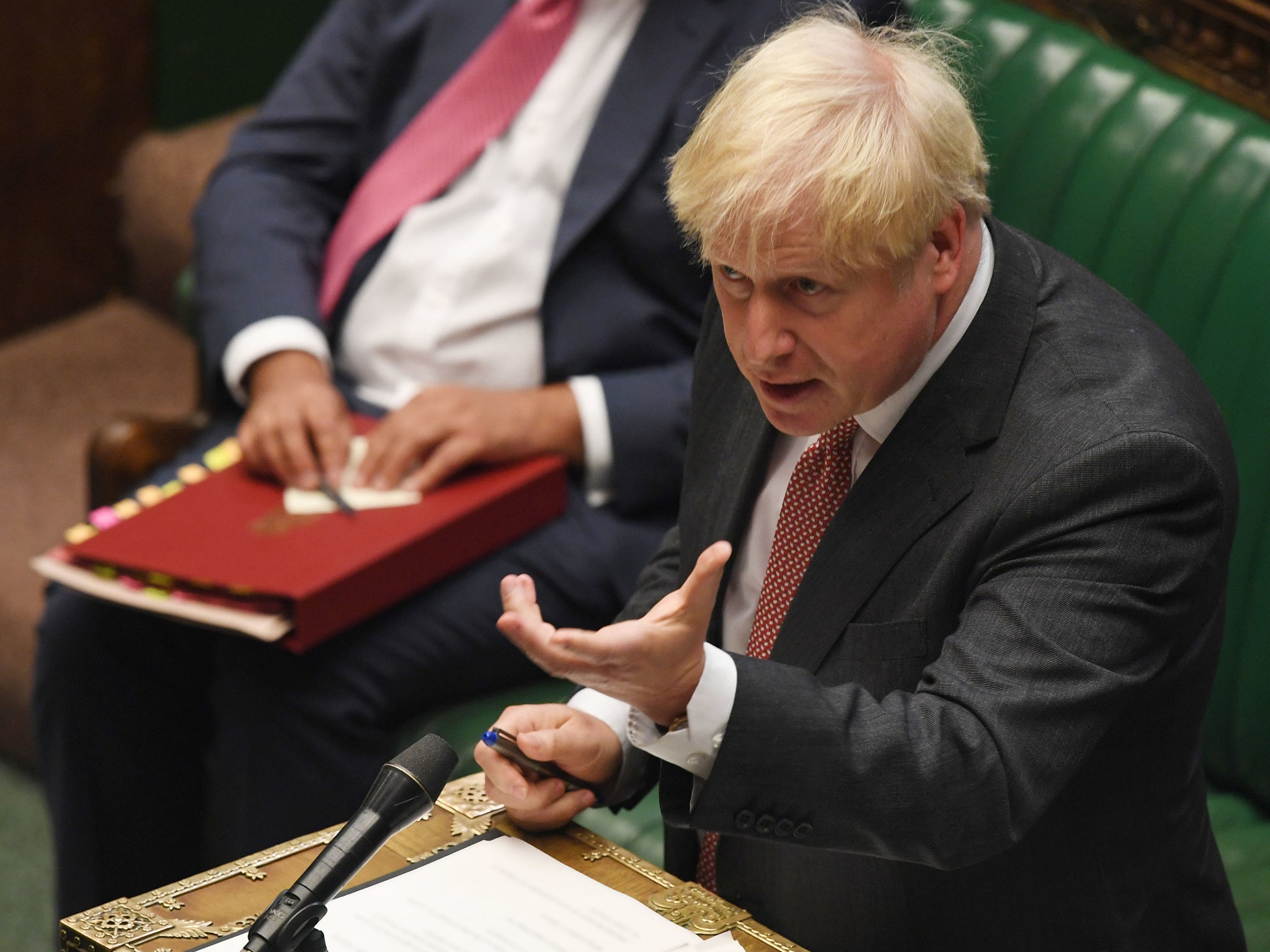Boris Johnson has pledged to publish a list of ‘Putin’s pals’ – but there’s a problem
Downing Street was unable to say when it would be published or how the names it contained would be selected, writes Andrew Woodcock


As the tragedy in Ukraine unfolds, Boris Johnson is coming under increasing pressure over his own party’s links with Russia and his apparent reluctance to come down hard on the oligarchs who have stowed so much of their money in the UK.
While the EU and US issue long blacklists of Kremlin cronies, and Germany seizes a plutocrat’s superyacht, the UK government has focused mainly on financial institutions and defence companies, with the first 130 sanctions including only eight named oligarchs.
With Britain the stomping ground for so many super-rich Russians – and with the Conservative Party having taken £2m in donations from Russian sources since Johnson took office – this wasn’t good enough for many MPs.
Using the cover of parliamentary privilege to avoid the risk of a libel claim from the notoriously litigious plutocrats, they demanded to know why Johnson hadn’t taken action against the likes of Chelsea boss Roman Abramovich.
Now, the government tells us that any delays are down to the fact that, under a new sanctions law introduced as one of the “benefits of Brexit”, the UK has to establish a watertight legal justification for each individual sanction – something it didn’t have to do as a member of the EU.
With more than 350 Russian MPs on the list and dozens of potential targets in the expat community of “Londongrad”, this is a long and arduous task currently occupying around 100 of Whitehall’s finest minds (while the oligarchs in question quietly sell up their properties and shift the money abroad).
So Mr Johnson came up with a wheeze at Prime Minister’s Questions on Wednesday, declaring that he was going to publish “a full list of all those associated with the Putin regime”. This sounded more like the sort of action MPs and voters were baying for...
The only problem was that no one else in government seemed to know what the list – quickly dubbed “Putin’s pals” – would actually involve. Downing Street was unable to say when it would be published or how the names it contained would be selected. A spokesperson said most of those on the list would probably end up being sanctioned, but not necessarily all of them.
Which of course led to the question of whether a different standard was being applied for the list and the sanctions? And if officials needed a watertight legal case to justify sanctions, why wouldn’t the same be true of Mr Johnson’s list? If there wasn’t enough proof of wrongdoing for official action to be taken against someone on the list, wouldn’t they have a surefire case for defamation if they chose to go to court?
Answers to these questions were not forthcoming, though the spokesperson did feel able to say “No” when asked: “Did the PM just make this up?”
Equally confusing was the question of what people were supposed to do with the list, if it included Russians deemed to be linked to Putin but not meriting official sanction.
To keep up to speed with all the latest opinions and comment sign up to our free weekly Voices Dispatches newsletter by clicking here
No 10 said that it should make individuals and companies “think very carefully” about doing business with those on the list.
But to many observers that looked a lot like the government trying to outsource its moral decisions, urging people to make their own minds up on whether to shun someone when ministers weren’t willing to do so.
All this confusion, of course, stems from Mr Johnson wanting to take a principled moral stance on the unprovoked invasion, while not wanting to have a spotlight shone on the morality of his own party’s past actions.
Not for the first time, he seems to be trying to have it both ways and ending up in a mess as a result.
Yours,
Andrew Woodcock
Political editor
Join our commenting forum
Join thought-provoking conversations, follow other Independent readers and see their replies
Comments
Bookmark popover
Removed from bookmarks